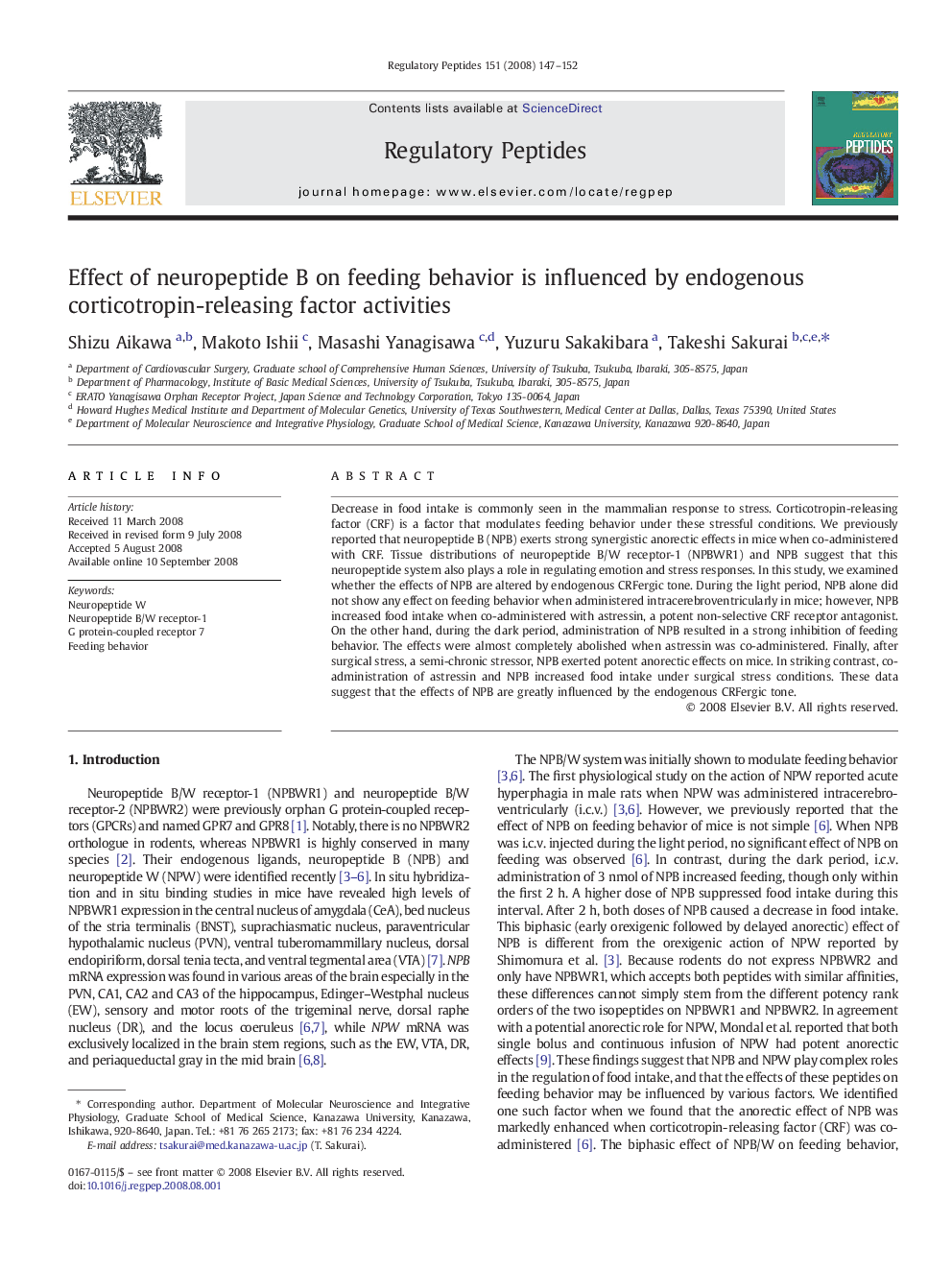| Article ID | Journal | Published Year | Pages | File Type |
|---|---|---|---|---|
| 2023035 | Regulatory Peptides | 2008 | 6 Pages |
Abstract
Decrease in food intake is commonly seen in the mammalian response to stress. Corticotropin-releasing factor (CRF) is a factor that modulates feeding behavior under these stressful conditions. We previously reported that neuropeptide B (NPB) exerts strong synergistic anorectic effects in mice when co-administered with CRF. Tissue distributions of neuropeptide B/W receptor-1 (NPBWR1) and NPB suggest that this neuropeptide system also plays a role in regulating emotion and stress responses. In this study, we examined whether the effects of NPB are altered by endogenous CRFergic tone. During the light period, NPB alone did not show any effect on feeding behavior when administered intracerebroventricularly in mice; however, NPB increased food intake when co-administered with astressin, a potent non-selective CRF receptor antagonist. On the other hand, during the dark period, administration of NPB resulted in a strong inhibition of feeding behavior. The effects were almost completely abolished when astressin was co-administered. Finally, after surgical stress, a semi-chronic stressor, NPB exerted potent anorectic effects on mice. In striking contrast, co-administration of astressin and NPB increased food intake under surgical stress conditions. These data suggest that the effects of NPB are greatly influenced by the endogenous CRFergic tone.
Keywords
Related Topics
Life Sciences
Biochemistry, Genetics and Molecular Biology
Biochemistry
Authors
Shizu Aikawa, Makoto Ishii, Masashi Yanagisawa, Yuzuru Sakakibara, Takeshi Sakurai,
